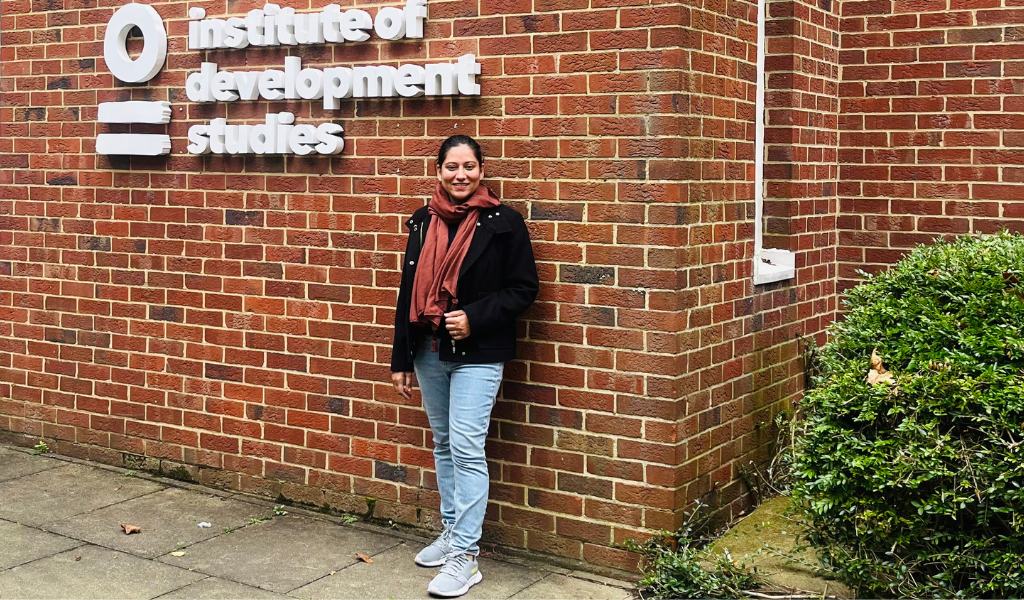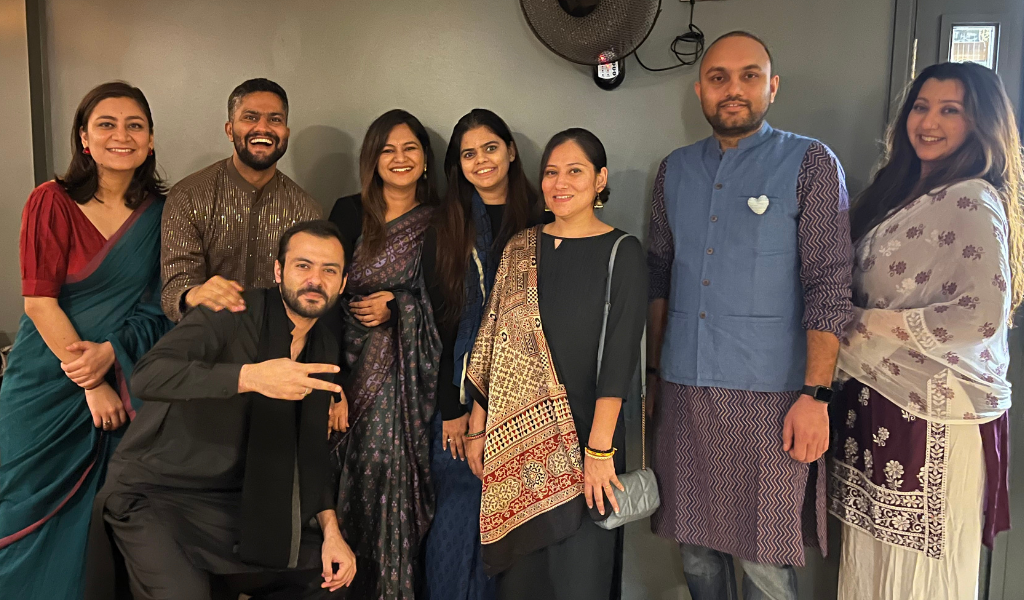Rachna Vyas came to IDS in September 2023 to study MA Governance, Development & Public Policy. She shares how she was supported to set up a space for other first-generation learners (students whose parents did not attend university), and the difference this has made to her time at IDS.
Before coming to IDS, I worked in the education sector in India. I worked with the State Education of Gujarat to implement vocational education in the secondary and higher secondary government schools. Simultaneously, I worked with Sajeevta Foundation which worked to improve learning levels of underprivileged students in Gujarat.

While doing this work, I realised the importance of public policy, the huge impact on the community, and how inclusive policies can have the potential benefit on people’s lives. Having worked in implementation for seven – eight years, I decided I wanted to look at the frameworks behind policies, and how they are made. Who are the actors involved in it? What are the priorities and the main actors involved in the decision making?
First impressions
It took me a while to process that I have crossed a part of the world to move here and study. It also took a while to get used to the UK culture and UK life. A year is not a long time to process everything and get ahead with your modules and coursework, which are very intense.
I had not prepared myself for the nitty gritty of daily life – I realised how different the learning style is from what I am used to in India. This is a place where you can build your own answers and customise your own course work – you are the owner of your own learning. I’ve enjoyed choosing the modules and structures and involving our personal experiences of working in international development. It has given us a chance to reflect on our journey – why we are working in the sector and what to do next.
Facing and overcoming challenges
Before I came to IDS, I was confident it was the right decision for me. But when I arrived, I grappled with a number questions and challenges: such as the financial pressures of living on a student budget and the cultural shock of attending such a huge university.
I wasn’t sure how I would adjust, and worried that I didn’t belong here. I thought it was just me having these doubts, until I spoke with Linda (Waldman, the Director of Teaching & Learning). We came up with the idea of a session to bring together first-generation learners who are struggling with similar issues, to try to build a community, and for them to be seen and heard in the university.
Connecting with other first-generation learners
When we held the first event we did not know if anyone would come… but to our surprise so many people turned up! All were grappling with the same or similar issues, which really validated the feelings I had. I felt instantly connected with other people, and that I have a community here.
We gave everyone space to share their unique experiences about where they have come from and how they are here. One of the participants mentioned that she is proud to have been an example for other female members of her family, that if she can go to a university across the country that it can be done!

There were some thought provoking discussions as well. Many of us felt personally that they are not doing enough, and that all the other students know what they’re doing. This was a sentiment that really resonated with everyone. It was reassuring to hear that others feel the same way, but also to realise collectively that we are here now, we don’t have to feel this way and in fact it is invalid to feel this way!
My personal learnings
When I first spoke to Linda about how I was feeling and met with the other learners and heard about their struggles with new environment, it was such a turning point. The others are all here and they are all surviving! I am not alone in this journey.
Now I journal as much as I can when I have these feelings and write down the facts of the situation. When my imposter syndrome is telling me something different, I reject it.
I also keep a daily checklist of the things I have achieved, such as: I attended class, I made notes, I spoke up, I was sincere, I made dinner. Now I also set weekly goals and reflect on the goals I have achieved. I try to be grateful for little things in life – they all add up to big things!
I am a single child, with both parents retired. It was a substantial risk for my family to send me away to study, when they themselves have never been out of India. But they had faith in me that I could do it, even when I didn’t have faith in myself. They showed determination in me and gave me strength, so I need to do my best for them and make them proud!
Future plans, after IDS
I got a chance to explore other sectors, such as climate and participatory and reflective practice. One of my goals is to start my own creative and reflective practice workshop with the students I was working with in India. I plan to blend theatre and creative practices, teaching life skills to build their confidence. I would like to use theatre as a medium for social change and a way for the community to express their voice.
Another goal I have is to go back to the education and livelihood sector in India, although I haven’t mapped out which organisation I want to work with yet. But these are some of the things I hope to do with the skills and perspectives that I’m gaining here.
Linda Waldman said, “As I am also a first-generation learner, it has been especially rewarding for me to see how much these events matter and to connect with students in this way. This theme is so important for helping students know how to learn, and I hope to continue to host first-generation workshops with future cohorts.”
